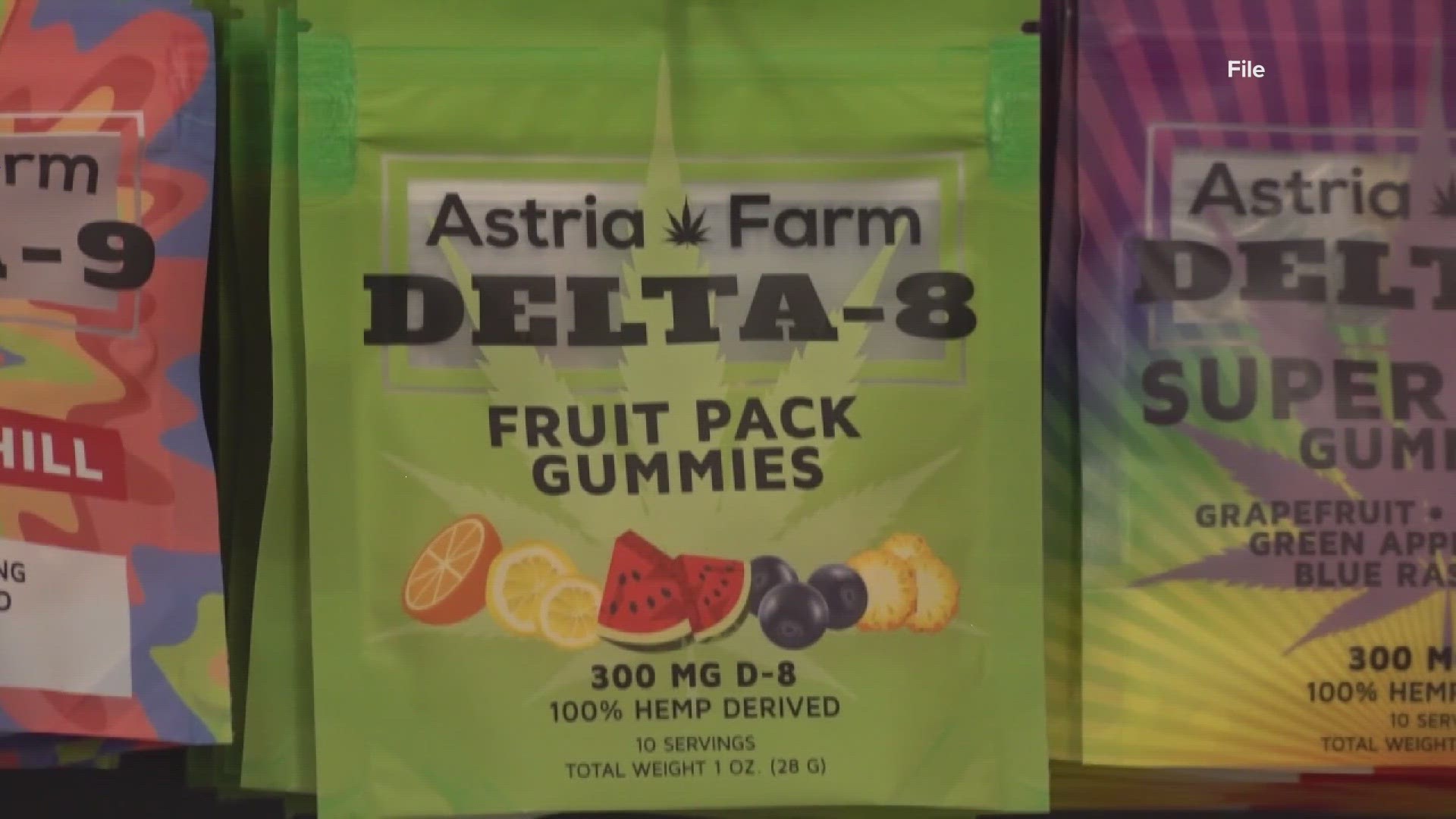LITTLE ROCK, Ark. — A federal judge has blocked an Arkansas law from being enforced that would have banned the sale of Delta 8 THC and other similar products on Thursday, Sept. 7.
U.S. District Judge Billy Roy Wilson's ruling stops the enforcement of Act 629, which was passed in the 2023 legislative session and banned sales and production of items containing Delta 8, Delta 9, and Delta 10 in the state.
The lawsuit was filed the day before the act went into effect by four businesses: Bio Gen LLC; Drippers Vape Shop LLC; The Cigarette Store LLC; and Sky Marketing Corp.
Lawyers representing those businesses argued that the law was "unconstitutionally vague" and that it was "preempted" by the 2018 Farm Bill. In 2018, then President Donald Trump signed that bill into law which removed hemp from the federal controlled substances list and allowed states to "regulate hemp production based on a state or tribal plan."
The bill also expanded the definition of hemp to include "the plant Cannabis sativa L. and any part of that plant, including the seeds thereof and all derivatives, extracts, cannabinoids, isomers, acids, salts, and salts of isomers, whether growing or not, with a delta-9 tetrahydrocannabinol concentration of not more than 0.3% on a dry weight basis.”
In his ruling, Wilson noted that while the state can pass restrictive laws on hemp production in Arkansas, restricting transportation of those items through the state would violate federal law. He also stated that the legislature seemed to "keep the parts of the program it likes (purely industrial uses) and eliminate the parts it doesn’t (human consumption)."
"Arkansas law criminalizes hemp derived products without an effective exemption for interstate commerce," Wilson said.
Wilson also said that Act 629 would confuse "even an exceptionally intelligent reader." He cited that some phrases like "continuous transportation", "psychoactive substances", and "synthetic substance" are vague and don't include definitions in the law.
He also noted that parts of the law focused on misuse, overdose, and accidental overconsumption makes it hard for "the typical person to know what to do" and if they guess wrong, "the consequences are potential criminal punishment."
He ruled that the plaintiffs are likely to suffer "irreparable harm" and any monetary damages cannot be measured or calculated reliably.
The judge granted the preliminary injunction, which blocks the enforcement of the law and denied the state's request to dismiss the case. Wilson set a trial for August 27, 2024.

